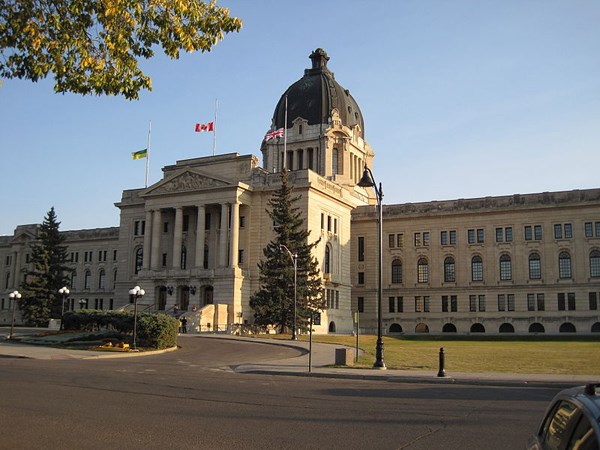The second session of the 28th Saskatchewan Legislature drew to a close last month. As the parties step away from the Legislative Assembly to focus on their constituents and prepare for the autumn, some MLAs are reflecting on their successes and failures during three months in 2018.
“Overall, it went quite well,” said Yorkton MLA Greg Ottenbreit.
Ottenbreit, the Minister of Rural and Remote Health with the governing Sask Party, is pleased with his organization’s work so far this year.
“[We’re] standing up for Saskatchewan’s interests,” he said.
For Ottenbreit, Saskatchewan’s interests include balancing the budget and, of course, resisting the proposed federally-mandated carbon tax.
“We’re going to continue on with our fight,” he said.
This session represented a moment of transition for the Sask Party. They chose Scott Moe as their new party leader and Premier after Brad Wall stepped down. Ottenbreit complimented Moe on his work so far.
“I was very impressed with Moe’s performance,” he said. “He represented us well.”
Moe wasn’t the only new party leader at the Legislature this session. Ryan Meili won the NDP party leader election in March.
“It’s been a pretty exciting session,” he said.
For Meili and the NDP, success was defined by pointing out shortcomings in the Sask Party’s approach while offering an different vision to Saskatchewanians.
“We continue to point out the cuts to education,” Meili said.
Meili was critical of the Sask Party’s resistance to the carbon tax. Meili claims that if the provincial government refuses to negotiate with the federal government, a carbon tax will be imposed. Ottenbreit disagrees.
“We criticized Meili for waving the white flag to Ottawa,” Ottenbreit said.
Ottenbreit highlighted his party’s alternative to the carbon tax: the Prairie Resilience plan. The program focuses on rewarding sustainable harvesting and on pulling carbon from the atmosphere.
“We think it’s a more positive approach than simply taxing people,” he said.
Meili called the plan flawed.
“It doesn’t meet requirements and it leaves money on the table,” he said. “It puts us in a pretty vulnerable position.”
Ottenbreit acknowledged missed opportunities during this past session, particularly in regards to mental health services and changes to the grants-in-lieu program.
“Yorkton was impacted harder than other communities [by those changes],” he said.
Ottenbreit and Meili plan to spend their summer meeting constituents and planning for the fall.
“[Time to] catch up with the constituency,” Ottenbreit said. “There’s always a lot of events to attend.”




